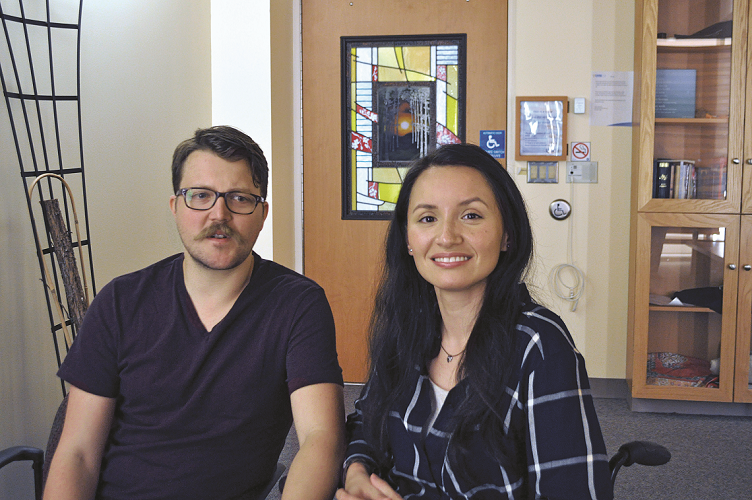
Registered Nurse Journal: Tell me about your first-year practicum as a nursing student last year. What did that involve?
Danielle Kane (DK): I worked in geriatric rehab at Lakeridge (Health) Whitby. Most (clients/patients) had falls of some kind and had broken hips. I had to do things like bathe them, help them with their lunch, and also with toileting. The thing that was the most impactful for me was the fact that I was able to provide these patients with dignity.
How has that experience helped you with your rehabilitation following the shooting?
DK: I’m realizing now how vulnerable people really are when they’re sick. Having provided the care before, now, when I look at my caregivers, like the nursing staff, I understand their perspective.
Is there a particular patient who comes to mind now that you find yourself on the receiving end of care?
DK: There was one lady in particular, she had a fall and she was so appreciative of the conversations we had. As a first-year student, there’s only so much I am able to do. (Thanks to her), I realized it’s more than just the technical care you provide. It’s that loving kindness that you bring.
You say you feel sorry for the man who shot you. You believe he was suffering from mental illness and you’ve also had experience with depression in your life. Tell me about that.
DK: From my own experience with depression, I know how it’s invisible to others…how you can easily be suffering and no one in your life knows. You can hide that. Also, there is a lot of stigma, that’s why when I saw this attack happen, I could only assume that someone who could act out that way must have felt very isolated.
Some people who are depressed are very outgoing and happy on the surface as a defensive mechanism, so people don’t see how they’re really feeling. Were you open about having to deal with depression before this shooting happened?
DK: To be honest, before this, it was hard for me to talk openly. There were a select few people I could talk to, especially when I was at a low point. I actually worked really hard to hide it from others because I was worried about judgment. (I’ve) experienced judgment so many times through my life. This is something I’ve dealt with since I was probably an adolescent.
Do you think your experience has opened some doors for you in terms of being more accepting of yourself?
DK: It’s easy for me to accept being (physically) disabled…because I feel like I’ve already been living with a disability, but that one was invisible, and I didn’t really get as much empathy and understanding. But everyone is understanding and empathetic about me being…a paraplegic. In a way, this is easier than the depression.
If society had reacted to your depression in the way it has reacted to your physical disability, do you think your trajectory through school would have been different?
DK: I think if people were as supportive of my depression, I probably would not have struggled with depression as long as I have.
Jerry Pinksen (JP): People say how strong…and how resilient she’s been. How she’s reacted to this is a testament (to the fact) that people with depression are not weak. They are not half a person.
How do you think your challenges with depression have affected your ability to deal with some of the tough moments in rehab?
DK: Those spells (of depression) eventually pass, so whenever I come up to a challenge in rehab, I think, I’m having a hard moment right now, but it’s not going to be forever…I will eventually push through and get to the other side. The most important thing people can do for depression is to have others around them who are compassionate. That is huge. The compassion that everyone has for me (now)…that provides me with so much strength to push forward and continue in spite of all the difficulties and challenges I face. I didn’t have that with depression. I was alone.
RNJ ACCESS
You are only one quick step away from full access to all RNJ content.
Already an RNAO member? Log in
